
(Review archived from February 20, 2023)
One of the fun aspects of the Space Quest series thus far is that, is that the ongoing story transitions seamlessly from one game to the next. So rather than an episodic format, each game picks up from (more or less) where the previous one ended. It’s a nice nod to the pulp sci-fi serials of yore from which these games take a lot of inspiration. Space Quest II was a great sequel which raised the stakes in almost every way; from game play improvements to epic story scope, it really raised the bar for the series and left some big shoes to fill for Space Quest III. The big question then is, does this game live up to its predecessor? And the answer is … ehhhhhh.
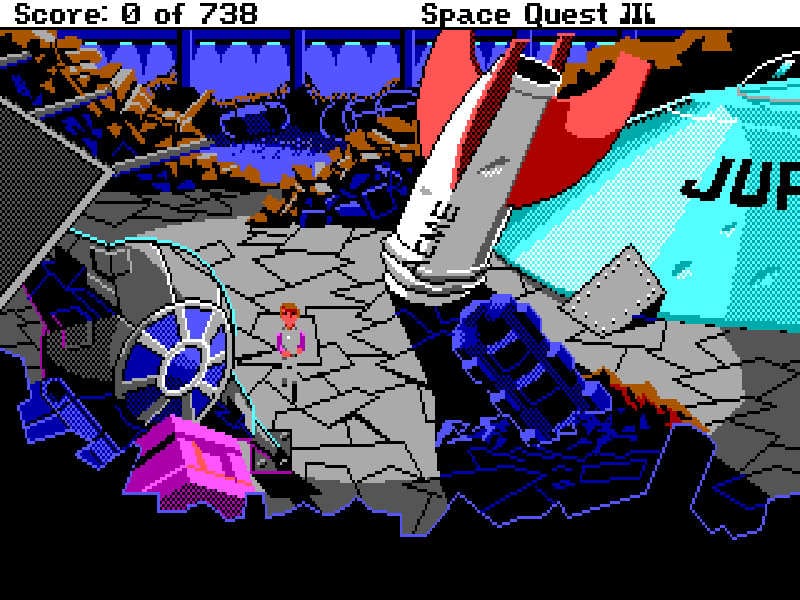
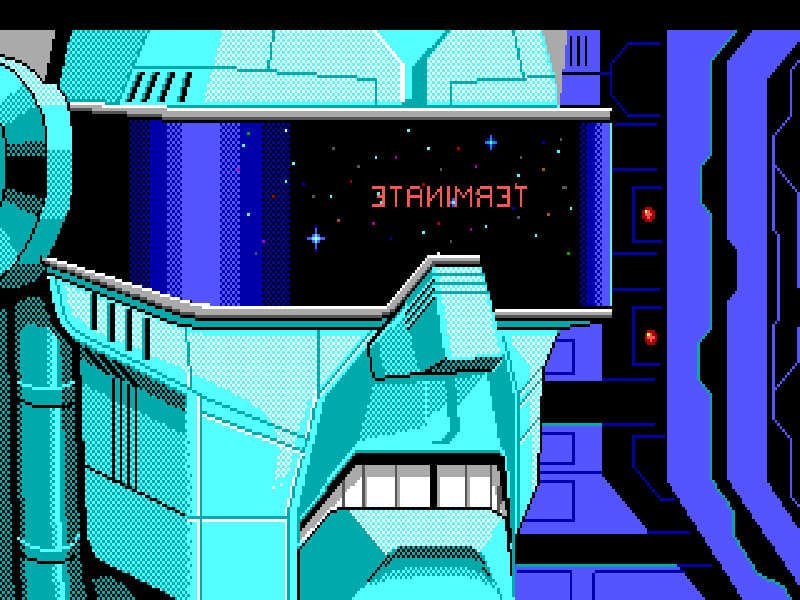
This is a sequel that is successful, not because it builds on or improves on what came before, but rather because it takes what was done before and doesn’t screw it up too terribly. So to address the question above, no this game is not as good as Space Quest II, but only because it lacks the ambition and scope of the previous title. It just feels … safe. By this time, Sierra had developed a very particular style to their games, and to their credit it’s what made them successful. The puzzle logic, the humor, the death-scenes (often some of the highlights in a Sierra title), and the graphics all have that Sierra quality to them. The downside to strong branding though, is that it can be a thin line between ‘strong branding and formulaic content’. And that kind of starts to show up in Space Quest III. It’s either a bit shorter than the previous games, or I just had an easier time with the puzzles, but either way, I’m not sure that’s a great thing.
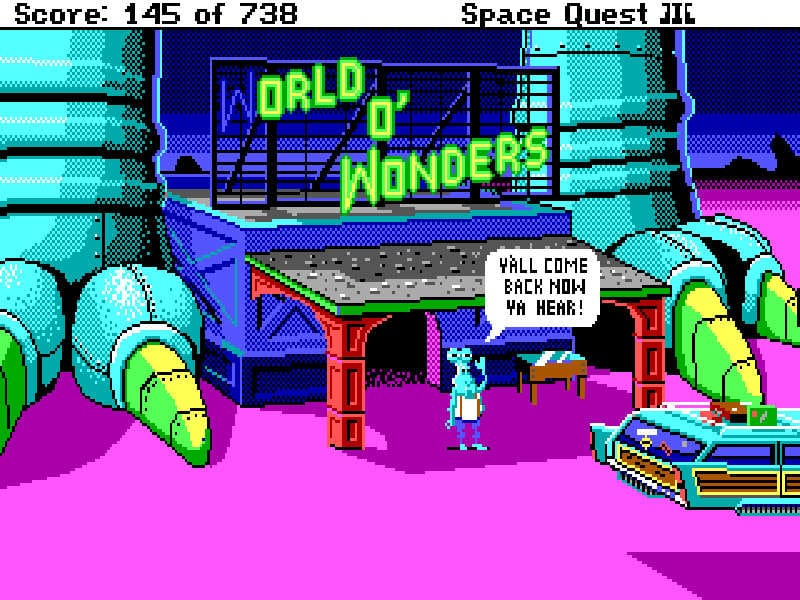
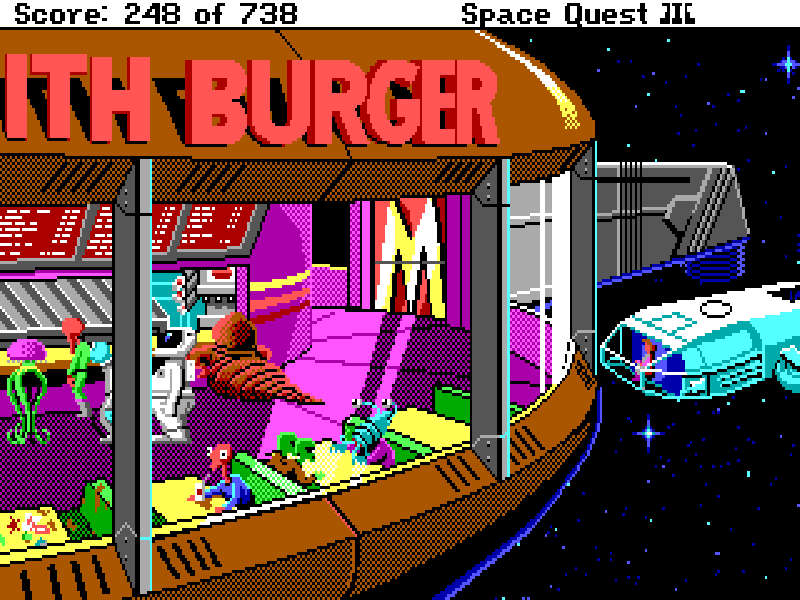
But maybe the real issue I have with Space Quest III comes down to the writing. When this series is firing on all cylinders it approaches something akin to “Hitchhikers Guide to the Galaxy: The Adventure Game” (yes, I am aware of the HGttG text adventure game; no I have not played it). But the trouble here is that for at least half the game the plot consists of free floating narrative events unrelated to moving the plot forward or really … anything else in the game. The first half of the game more or less relies on that trademark Sierra wit to carry the proceedings, and while that has its moments … ‘Sierra comedy gold’ is not enough to carry the entire game. Eventually the plot comes into focus, and turns into … wait for it … a meta-narrative. The developers of the game (i.e. the Two Guys From Andromeda) have been kidnapped by the titular Pirates of Pestulon, and it’s up to Roger Wilco to rescue them. It is kind of a fun novelty to visit the development offices in which the Pirates have implemented a policy of forced game development, but it’s a novelty that once again can only carry it so far. I mean it was a fun secret discovery to visit the developer’s room in Chrono Trigger, but … that wasn’t the plot of the game either. My judgment here is probably slightly tainted by modern cynicism, having seen this sort of meta-narrative in many games before (and indeed probably this exact plot), but the trouble with segments like this, is that they are often filled with inside jokes which are funny only to the people who wrote the jokes. So the story here amounts to 50% aimless narrative and 50% cliché in hindsight. I need to be clear that hindsight isn’t exactly a good lens to apply here though being as at the time, I’m sure a meta-narrative like this felt properly fresh. I just had a hard time getting out of my ‘modern mindset’ in this particular instance.
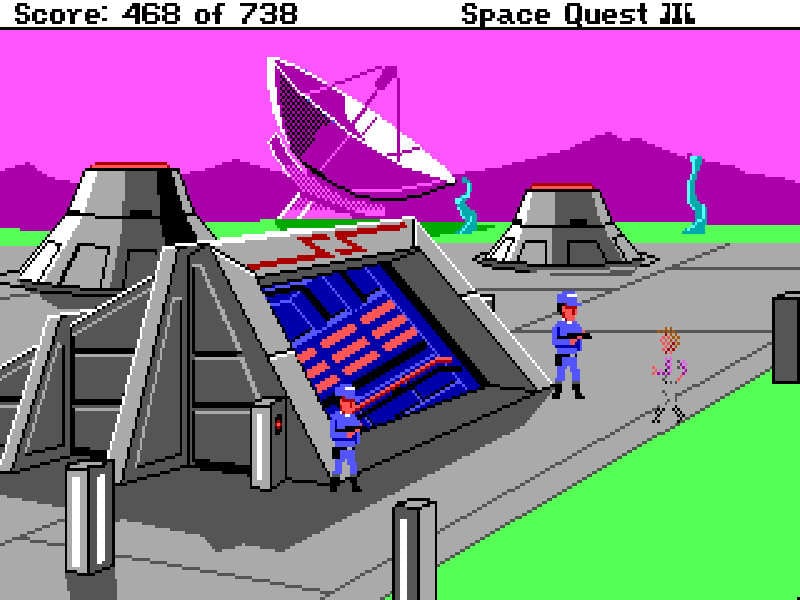
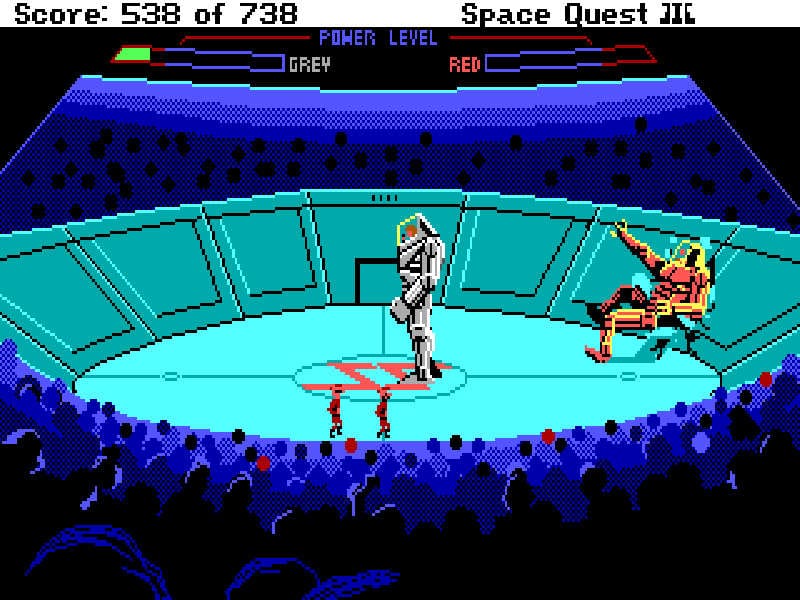
So yeah, I feel like I’ve been rather hard on this one, and maybe in some ways that’s not exactly fair. This is a pretty good adventure game saddled with a bit of a ho-hum narrative. It certainly stands head and shoulders above many other adventure games of its time. All told I’d call it 7/10.
Leave a Reply